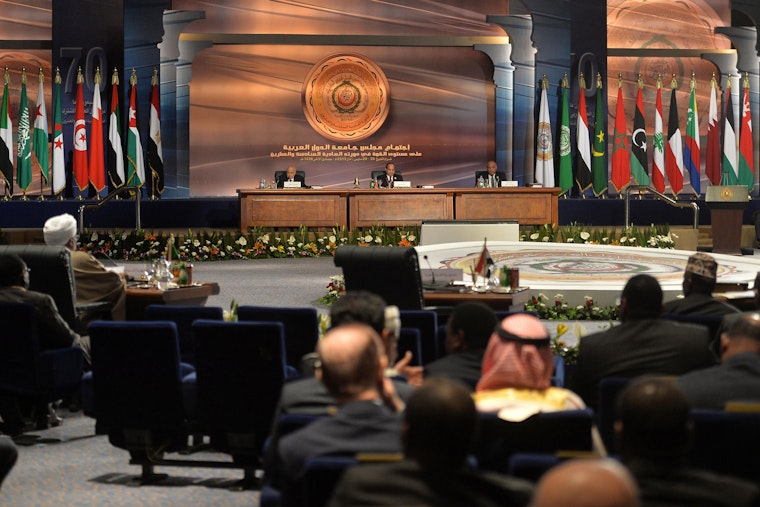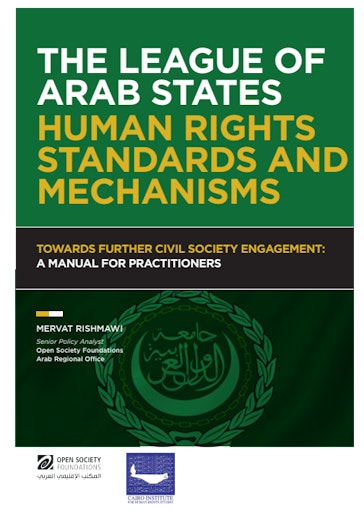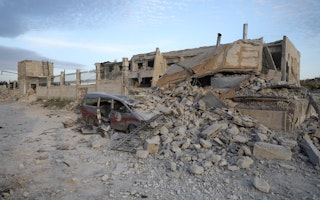Can the Arab League Be Civil Society’s Partner for Human Rights?
By Mervat Rishmawi

It comes as no surprise that people in the Arab world and beyond largely view the League of Arab States as a futile and ineffective organization serving the interests of governments rather than addressing human rights concerns. Since its creation in 1945, the League has made little effort to address the dire human rights situation in the Arab world—one of the triggers of the “Arab uprisings”—much less improve it.
This is partly due to the absence of meaningful direct links between the Arab League, victims of human rights violations, and civil society. Unlike similar organizations, the League grants civil society organizations observer status only—and even then, only a few organizations are allowed this access on the basis of very restrictive criteria.
This is regrettable because, as a regional intergovernmental organization, the Arab League is well positioned to assume a much-needed leading role in the promotion and protection of human rights in the Arab world. And indeed, in the last few years, the League has taken some steps towards this objective. It adopted the Arab Charter on Human Rights in 2004 and established the Arab Human Rights Committee to review and highlight states’ progress as well as shortcomings with respect to human rights. The current process for redrafting the Arab Refugee Convention may result in a document more respectful of international standards. The latest reform of the Arab League Charter, now in its final stages, could also lead to the incorporation of human rights protection as one of the League’s founding principles.
Although these are all welcome steps, they are not without flaws. The most glaring shortcoming is the exclusion of civil society and victims of violations from the Arab League’s procedures and processes. For instance, the statute of the Arab Court for Human Rights, a new body established in 2014, was drafted without input from civil society organizations or human rights experts, and thus contains critical flaws. Individuals cannot bring cases directly to the court; only states can do so on behalf of their citizens, greatly limiting the court’s power to redress human rights violations and bring perpetrators to justice.
This raises a fundamental question of whether we, civil society organizations, should advocate for human rights through the Arab League, or assume that it is a lost cause. Our new publication, The League of Arab States: Human Rights Standards and Mechanisms, argues that the more we engage with the League, the more we will influence it.
The Arab League has the potential to play a larger role in the protection of human rights. This is why, over the last 20 years, human rights, humanitarian, and development organizations have engaged with various bodies of the Arab League. Although such efforts resulted mostly in limited success, some had impact. For example, many organizations made specific proposals during the drafting process of the Arab Charter on Human Rights. Some of their views were adopted by the drafting committee and are now reflected in the charter.
Understanding the Arab League, and its standards and mechanisms, is essential for civil society organizations to identify future opportunities to influence it. This requires a coherent and strategic approach. The change may be slow, but persistence and informed vision will enable us to contribute to the reform of the Arab League and push it to be a driving force for the protection and promotion of human rights in the Arab world.
Mervat Rishmawi is an expert on human rights in the Arab region and the League of Arab States at the Arab Regional Office of the Open Society Foundations.


